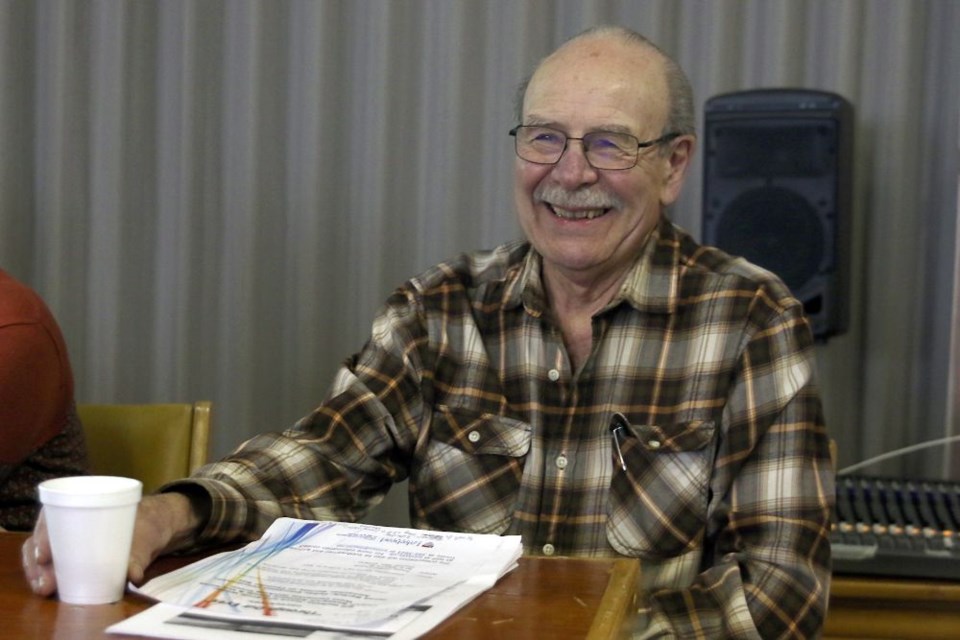Sixteen years ago, Bill Heibein was diagnosed with early-onset Alzheimer’s disease.
At the time just 59, his doctors told the lifelong horse rancher he probably had five good years left before his memories began to fade for good, leaving him in a fog and dependent on others for his care and well-being.
But Heibein has managed to defy the odds, and says he thinks it’s because he’s remained active from the initial diagnosis, slowing the progress of dementia, a disease that afflicts nearly three-quarters of a million people in Canada alone.
On Wednesday at Trinity Church on Thunder Bay’s north side, Heibein joined a panel discussion to share his story, in hopes that others who suffer from Alzheimer’s can follow in his footsteps.
“I’m very active physically. I’m active socially,” the 75-year-old said.
“The more involved you are, the more active you are, that does have a bearing in slowing down the overall progression of this.”
He admitted it would have been easy to take the original diagnosis and simply accept his fate. It’s what many with Alzheimer’s do.
After his diagnosis, he slipped into a three-month depression, but the birth of three foals on his farm and the work needed to get older horses ready to show helped pull him out.
Not everyone is that lucky.
Heibein, the chairman of the annual Walk for Memories, said there’s a stigma that surrounds the disease and other forms of dementia.
“A lot of people are afraid to get out and appear in public and talk to people because of the stigma that goes along with this diagnosis,” he said.
“The general consensus seems to be once you’re diagnosed, you virtually no longer look after yourself. You can no longer actively be involved in the community and organizations, etc. But the more you can be involved, the better off you’re going to be.”
Cognitively, the 75-year old has noticed some progression of his symptoms. His audio retention of information has slipped, a fact confirmed in 2008 tests, eight years after he’s been diagnosed.
“The big thing I hope comes out of this is that if there is anybody that is concerned that they have a problem, that they have a member of the family who may have a problem that they go and talk to a doctore,” he said.
“Seek medical attention. Get on medication if it’s appropriate, because the sooner you get on medication, the slower the decline that is inevitable. It’s going to come, but at least that medication can slow it, in many cases.”
Sign in or register
- Messages
- Post a Listing
- Your Listings
- Your Profile
- Your Subscriptions
- Your Likes
- Your Business
- Support Local News
- Payment History
Registered Users
Already have an account?
New Users
Create a free account.
